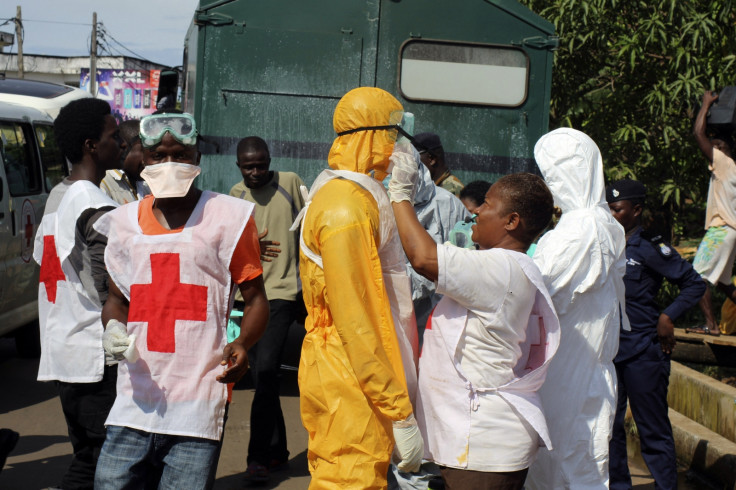Ebola Outbreak: WHO-Recommended 21-Day Quarantine 'Not Sufficiently Protective of Public Health'

The 21-day quarantine period for those infected with Ebola might not be enough to avoid the spread of infection, despite the procedure being standard practice and recommended by the World Health Organisation.
Examining data from previous outbreaks of the disease and comparing it this this year's epidemic, an environmental engineering professor at Drexel University, Dr Charles Haas, has estimated that there is a 12% chance someone could be infected after the three week quarantine period.
"While the 21 day quarantine value currently used may have arose from reasonable interpretation of early outbreak data, this work suggests a reconsideration is in order," Dr Haas wrote.
"21 days may not be sufficiently protective to public health."
The study suggests the scientific basis for the length of the quarantine is based on insufficient evidence from previous Ebola outbreaks in Zaire in 1976, Uganda in 2000 and the Congo outbreak in 1995, as well as the first nine months the current outbreak.
Dr Haas examined incubation times for the virus in the previous outbreaks and found that 12% of the time, an individual will have a greater incubation period than 21 days.
In some cases, a 31-day incubation period might be necessary to contain the virus.
Without recommending a specific quarantine period, Dr Haas pointed out that costs and benefits must be considered when determining how long to isolate Ebola patients.
"21 days has been regarded as the appropriate quarantine period for holding individuals potentially exposed to Ebola virus to reduce risk of contagion," he added, as reported by Forbes.
"There does not appear to be a systematic discussion of the basis for this period."
The WHO states the incubation period, the time interval from infection with the virus to onset of symptoms, for the disease is on average between two and 21 days.
The study highlight that most patients do not deviate from this time and many do not see a doctor before symptoms arise, making a 21-day isolation sufficient for the majority of infected people.
In the current outbreak, which has killed over 4,400 people, an increasing number of people are being quarantined before symptoms arise.
Dr Haas suggests one way to get help curb the spread of the disease is to set a longer quarantine period, so those who survive it may not infect others towards the end of their quarantine period.
Once someone recovers from Ebola they can no longer spread the disease, but it may be present in semen for up to three months, according to the Centers for Disease Control and Prevention.
The study was published in the journal PLOS Currents: Outbreaks.
© Copyright IBTimes 2025. All rights reserved.






















